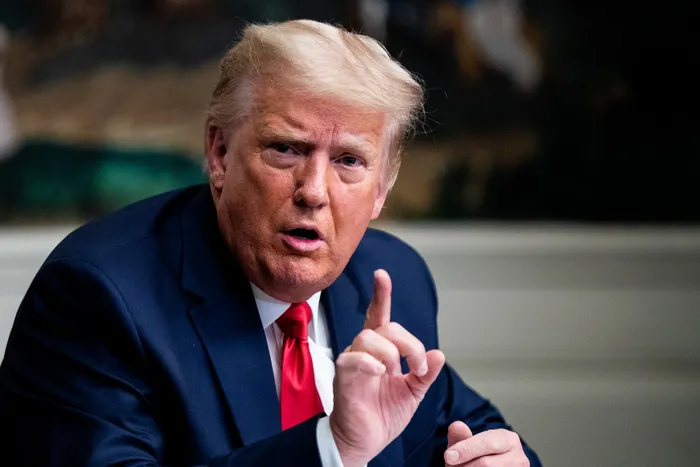Trump to double steel and aluminium tariffs, sparking trade concerns
IMPORTS

Since returning to the office in January, Donald Trump has taken a hard stance on trade, reintroducing tariffs that affect countries around the world, including longtime allies.
Image: AFP
President Donald Trump announced Friday that the US will double tariffs on steel and aluminium imports, a move he says is meant to protect American workers and industries. Starting Wednesday, June 4, tariffs on imported steel will rise from 25% to 50%, with aluminium tariffs also increasing to the same level.
Speaking to a crowd of workers at a US Steel plant in Pennsylvania — a key battleground state—Trump said, “Nobody’s going to get around that.” He emphasised that boosting tariffs would help keep steel jobs in the US and claimed that the very plant he was speaking at might not still exist without the tariffs he had imposed during his first term.
Shortly after the speech, Trump confirmed the expanded tariffs on his social media platform, Truth Social, saying the new rates would take effect next week.
Since returning to the office in January, Trump has taken a hard stance on trade, reintroducing tariffs that affect countries around the world, including longtime allies. While these moves have drawn criticism from economists and some lawmakers, Trump insists they are necessary to revive American manufacturing and reduce reliance on imports.
Earlier in the week, a court temporarily ruled that Trump may have gone beyond his legal authority in issuing these tariffs. However, a higher court allowed the tariffs to remain in place while the case continues.
Friday’s speech also touched on a controversial business deal between U.S. Steel and Japan’s Nippon Steel. Trump highlighted the partnership but made it clear that “U.S. Steel will continue to be controlled by the USA,” and promised there would be no job cuts or outsourcing. He also claimed the deal could bring 70 000 jobs and $14 billion to the U.S. economy.
While Trump praised the potential benefits, he also admitted that the deal has not been finalised. “I have to approve the final deal with Nippon, and we haven’t seen that yet,” he told reporters after returning to Washington.
The proposed $14.9 billion sale of U.S. Steel to Nippon Steel has faced strong political opposition. Just before leaving office, former President Joe Biden blocked the deal, citing national security concerns. Now, Trump seems more open to a modified arrangement, as long as key operations stay in the U.S.
Nippon has said it would invest $2.2 billion into the Mon Valley Works-Irvin plant in Pennsylvania, and another $7 billion to modernise steel mills and build new facilities in Indiana and Minnesota.
Although not everyone is convinced. The United Steelworkers union (USW), which represents many of the plant’s workers, said they were not involved in any talks about the deal. USW President David McCall said the union remains worried about what the partnership could mean for workers and US national security.